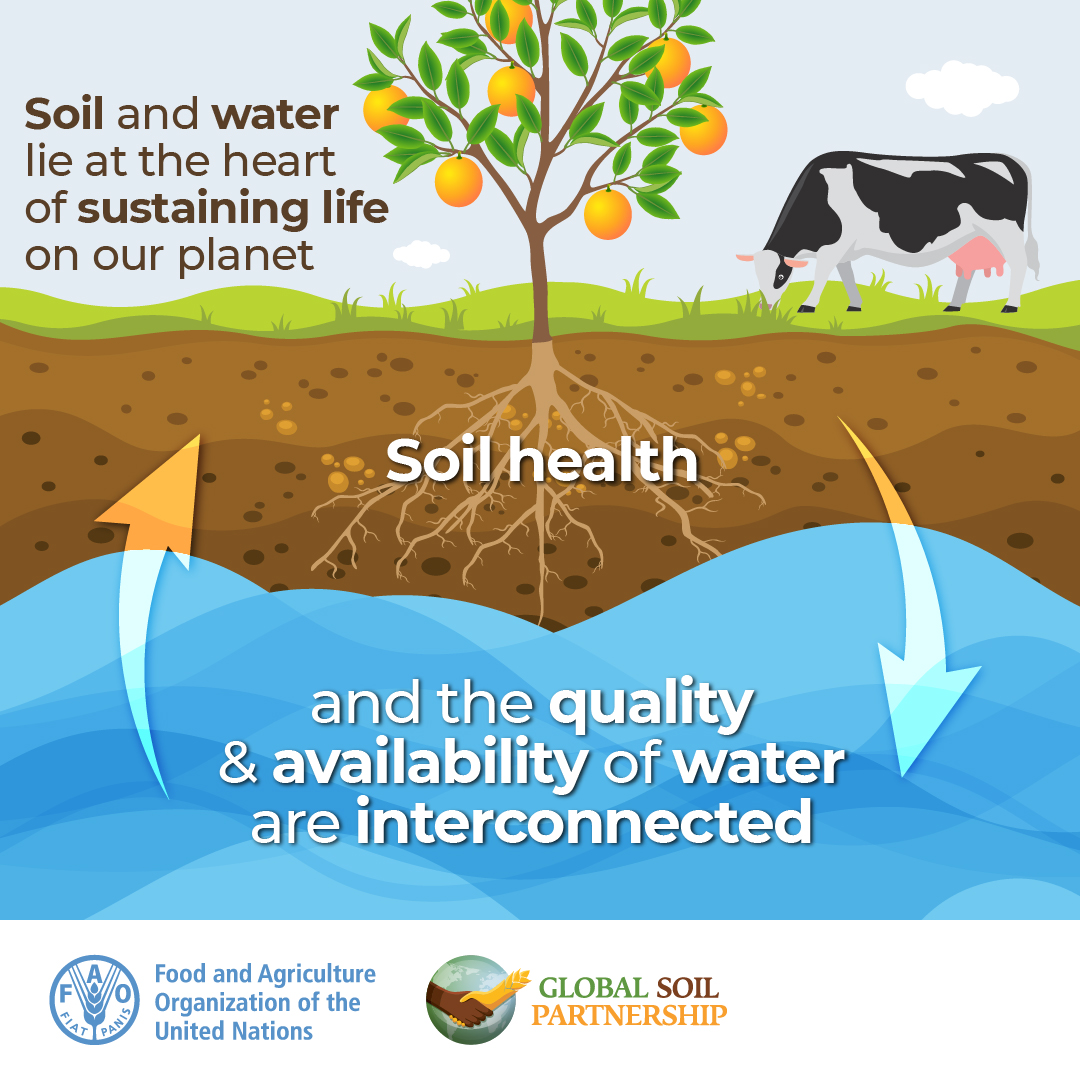95% of the food consumed globally comes from soil and water, according to the United Nations. In addition, soils are fundamental to human and ecosystem well-being because of their role in regulating water retention and availability, their ability to withstand extreme weather events or because they act as carbon sinks. But due to climate change and human activity, soils around the world are being eroded and degraded, threatening biodiversity, soil health and fertility, as well as the quality and quantity of available water that depends on them. That is why, since 2014, the United Nations has been celebrating World Soil Day every 5th of December. In 2023, this international day focuses on the importance and relationship between soil and water for sustainable and resilient agri-food systems.

Agrotecnio has been researching this problem for years. The Agronomy and Environment group, led by the centre’s researcher and professor at the University of Lleida (UdL) Carlos Cantero Martínez, has several specific projects. One of them is the SintMed project, funded by the State Research Agency from September 2022 to August 2026, which uses an agronomic strategy of “sustainable intensification” in extensive crops to evaluate crop production systems in the Mediterranean climate to promote yields while protecting the quality of air, soil and water. SintMed is a project coordinated by the Aula Dei Experimental Station (CSIC) in which Agrotecnio and the UdL focus on diversified rotation of irrigated winter crops and cover crops in summer in combination with different soil management systems. To achieve this model of “sustainable intensification”, measurements are taken on crop yields and water use efficiency, but also on pollen quality, microbial activity or carbon and nitrogen dynamics in the soil.
Agrotecnio’s Environmental Physical Chemistry group, led by UdL professors Jaume Puy and Josep Galceran, also studies the state of soils as part of a project funded by the Catalan government’s Department of Climate Action, Agriculture and Rural Agenda and other sources. In this group, the quality of water and soils is analysed in relation to the presence of key substances (such as zinc, phosphorus or cobalt) and samples are taken (for example, in the river Segre) with the aim of monitoring their behaviour in natural waters and soils. At the 2023 DGT congress in Paris, the group presented contributions on the assessment of phosphorus in agricultural soils through passive samplers. This is relevant for a more rational application of fertilisers, avoiding both unnecessary consumption and harmful effects of excesses on the environment.
Soil is a finite and non-renewable resource. Today, 33% of land is moderately or highly degraded due to erosion, salinisation, compaction, acidification or soil contamination. According to the FAO, world population growth will lead to a 60% increase in demand for food, feed and fibre by 2050, despite the fact that there is little scope for expansion of agricultural land. Sustainable management of agricultural soils and sustainable production are therefore essential to reverse the trend and ensure food security.

